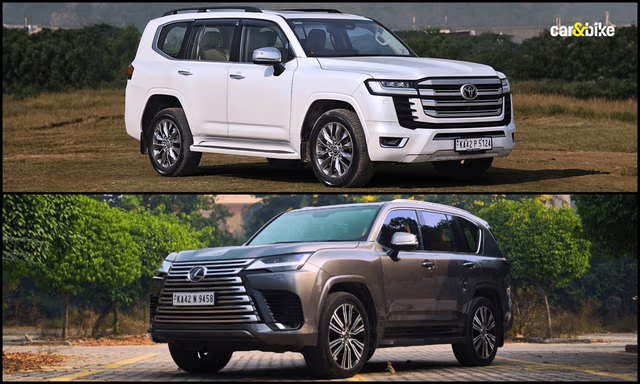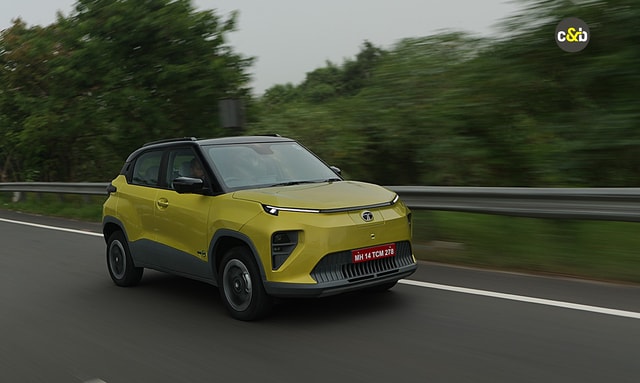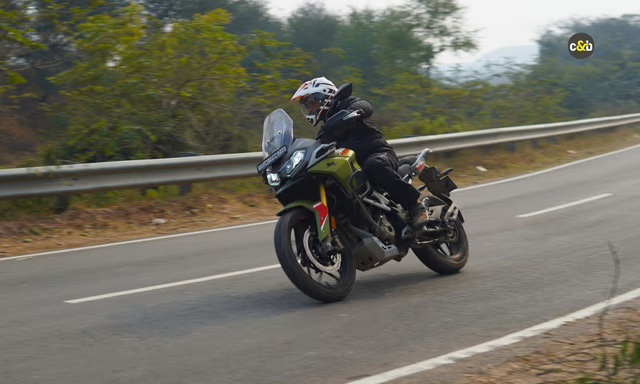Government Set To Replace 30,000 Diesel Buses With Electric Buses - Report

- The Central Government is seeking to acquire as many as 30,000 electric buses in the next 2-3 years.
- The program could soon expand to as many as 1,00,000 electric buses.
- One of the bigger problems is the charging infrastructure, and the need to upgrade the grid.
Electric mobility is gaining traction everyday, and we always knew that public transport would move to becoming completely electric. While many state governments are slowly introducing electric buses to their public transport fleet, the Central Government is now reportedly seeking to replace as many as 30,000 diesel buses with electric ones in the next 2-3 years, generating a Rs. 28,000 crore business opportunity for bus manufacturers.
Also Read: Switch Mobility India Could Explore Smaller Electric Buses For India
Tata Motors has been supplying many state governments with electric buses.
According to Convergence Energy Services Limited (CESL), the size of the programme could expand more than three-fold over time. While talking to another publication, CESL managing director Mahua Acharya said that buses are an area of the highest impact, socially and environmentally, with the potential to expand the EV fleet size to about 1,00,000 units. "It (1,00,000 units) is very much doable. Switching public transport buses to electric would substantially help in reducing the crude imports, which is a priority for the government," said Acharya.
Also Read: Tata Motors To Supply 921 Electric Buses To The Bengaluru Metropolitan Transport Corporation
However, one of the main areas of restriction is also the charging infrastructure, since even though chargers can be installed in bus depots, the grid will need to be upgraded to handle such loads. "We do a depot assessment, check transformers, study routes and then aggregate the demand across states to lower costs through scale," Acharya added, talking about the charging solutions. "This cost (of upgrading transformers and cable lines) cannot be socialised," she added.
Switch Mobility recently introduced an electric double-decker bus.
Also Read: Tata Motors to Supply 1,180 Electric Buses To West Bengal
According to a tender floated by CESL earlier this year, an electric bus seeks 27 per cent lower running rates when compared to diesel powered buses, and 23 per cent lower rates when compared to CNG powered buses, even before factoring in incentives. With over 16 lakh buses plying on Indian roads every day and most of them being diesel powered, an accelerated move to electric buses will not only result in a cleaner environment, but also a more profitable operation.
Source - ET Auto
Latest News
 car&bike Team | Feb 28, 2026Zero-Dep Cover: The Renewal Add-on That Ensures You Don’t Pay for Parts1 min read
car&bike Team | Feb 28, 2026Zero-Dep Cover: The Renewal Add-on That Ensures You Don’t Pay for Parts1 min read car&bike Team | Feb 28, 2026Toyota Land Cruiser, Lexus LX Recalled Over Transmission Malfunction RiskThe recall affects 969 units of the Toyota Land Cruiser and 117 units of the Lexus LX.1 min read
car&bike Team | Feb 28, 2026Toyota Land Cruiser, Lexus LX Recalled Over Transmission Malfunction RiskThe recall affects 969 units of the Toyota Land Cruiser and 117 units of the Lexus LX.1 min read Jaiveer Mehra | Feb 27, 2026New Tata Tiago EV Spied Testing On Indian Roads: Enhanced Range Incoming?Launched in India in 2022, the Tiago EV received a notable update last year, adding in newer features and some styling tweaks.3 mins read
Jaiveer Mehra | Feb 27, 2026New Tata Tiago EV Spied Testing On Indian Roads: Enhanced Range Incoming?Launched in India in 2022, the Tiago EV received a notable update last year, adding in newer features and some styling tweaks.3 mins read car&bike Team | Feb 27, 2026VLF Mobster 135 Price Hiked As Introductory Offer EndsThe Mobster 135 is now priced at Rs 1.37 lakh (ex-showroom), which marks an increase of Rs 7,000.2 mins read
car&bike Team | Feb 27, 2026VLF Mobster 135 Price Hiked As Introductory Offer EndsThe Mobster 135 is now priced at Rs 1.37 lakh (ex-showroom), which marks an increase of Rs 7,000.2 mins read car&bike Team | Feb 27, 2026New MG plug-in hybrid SUV Spied testing In India AgainMG’s next new launch in the Indian market could be the Wuling Starlight 560-based model that has been spied on test for the second time in India.2 mins read
car&bike Team | Feb 27, 2026New MG plug-in hybrid SUV Spied testing In India AgainMG’s next new launch in the Indian market could be the Wuling Starlight 560-based model that has been spied on test for the second time in India.2 mins read Jaiveer Mehra | Feb 27, 2026Mini Cooper S Victory Edition Bookings Open In IndiaSpecial edition of the Mini hatchback commemorates the brand’s 1965 Monte Carlo Rally victory.1 min read
Jaiveer Mehra | Feb 27, 2026Mini Cooper S Victory Edition Bookings Open In IndiaSpecial edition of the Mini hatchback commemorates the brand’s 1965 Monte Carlo Rally victory.1 min read
 Bilal Firfiray | Feb 28, 2026Tata Punch EV Facelift Review: More Range, More Sense, Less MoneyThe Tata Punch EV facelift gets a bigger 40 kWh battery, faster 60 kW DC charging, improved thermal management, and better real-world range, and all of that at a lower introductory price. But does it become a more complete package now?6 mins read
Bilal Firfiray | Feb 28, 2026Tata Punch EV Facelift Review: More Range, More Sense, Less MoneyThe Tata Punch EV facelift gets a bigger 40 kWh battery, faster 60 kW DC charging, improved thermal management, and better real-world range, and all of that at a lower introductory price. But does it become a more complete package now?6 mins read Preetam Bora | Feb 24, 2026Hero Destini 110 Review: Simplicity, RefinedThe Hero Destini 110 is a no-nonsense commuter that is simple, comfortable and above all, fuel efficient. In 2026, when buyers are spoilt for choice, is it good enough to consider?1 min read
Preetam Bora | Feb 24, 2026Hero Destini 110 Review: Simplicity, RefinedThe Hero Destini 110 is a no-nonsense commuter that is simple, comfortable and above all, fuel efficient. In 2026, when buyers are spoilt for choice, is it good enough to consider?1 min read Preetam Bora | Feb 23, 2026TVS Apache RTX Road Test Review: Redefining the Entry-Level ADVAfter spending some time with the TVS Apache RTX in traffic, the daily commute, as well as on open highways, one thing becomes clear: the RTX is trying to redefine the entry-level ADV segment. But is it without fault?1 min read
Preetam Bora | Feb 23, 2026TVS Apache RTX Road Test Review: Redefining the Entry-Level ADVAfter spending some time with the TVS Apache RTX in traffic, the daily commute, as well as on open highways, one thing becomes clear: the RTX is trying to redefine the entry-level ADV segment. But is it without fault?1 min read Girish Karkera | Feb 20, 2026Road Test: 2025 VinFast VF7 AWD Sky InfinityFlagship all-electric SUV from the Vietnamese car maker gets most of the basics right.1 min read
Girish Karkera | Feb 20, 2026Road Test: 2025 VinFast VF7 AWD Sky InfinityFlagship all-electric SUV from the Vietnamese car maker gets most of the basics right.1 min read Jaiveer Mehra | Feb 18, 2026New BMW X3 30 Vs Mercedes-Benz GLC 300: Midsize Luxury SUV FaceoffWith the new X3 30, BMW has a direct competitor to the petrol GLC 300, but which is the luxury SUV for you?1 min read
Jaiveer Mehra | Feb 18, 2026New BMW X3 30 Vs Mercedes-Benz GLC 300: Midsize Luxury SUV FaceoffWith the new X3 30, BMW has a direct competitor to the petrol GLC 300, but which is the luxury SUV for you?1 min read
























































































































